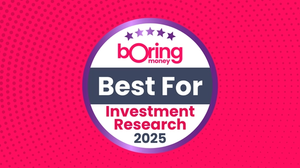What is investment 'edge', and how do fund managers get it?
2 Jan, 2025
In investing, having an "edge" means having a specific advantage that helps you perform better than average market returns. This advantage typically comes in several forms.

Information advantage
The first is having better information than others - not insider trading, but rather deep research and industry knowledge that provides valuable insights. Investment managers often build extensive networks and relationships that give them early awareness of industry trends and changes.
Analytical capabilities
The second is superior analysis. Many managers develop sophisticated methods to analyse data and spot patterns that others might miss. This could involve complex quantitative models, machine learning, or unique frameworks for evaluating investments.
Understanding market psychology
Understanding market psychology provides another type of edge. Markets are driven by human behavior, and managers who grasp why other investors make certain decisions can position themselves advantageously. They recognise common psychological traps and work to avoid them through disciplined investment processes.
Systematic approach
Having a systematic approach is crucial. The best managers develop clear, repeatable processes for evaluating investments and managing risk. This helps them stay consistent and avoid emotional decision-making during market volatility.
Continuous improvement
Maintaining an edge requires constant learning and adaptation. Markets evolve continuously, and successful managers stay current with new research, technologies, and investment approaches. They regularly refine their methods based on experience and changing conditions.
Implications for investors
For individual investors, understanding these concepts helps inform better investment decisions - whether that means selecting skilled fund managers or developing your own systematic approach to investing. The key is recognising that consistent outperformance comes from developing specific advantages and applying them systematically over time.






